


Crash Course Biology
8.9
2012
Documentary
And thus begins the most revolutionary biology course in history. Come and learn about covalent, ionic, and hydrogen bonds. What about electron orbitals, the octet rule, and what does it all have to do with a mad man named Gilbert Lewis? It's all contained within. www.youtube.com/crashcourse
-
- Cast:


Episode 40 : Ecology - Rules for Living on Earth
October. 29,2012
Hank introduces us to ecology - the study of the rules of engagement for all of us earthlings - which seeks to explain why the world looks and acts the way it does. The world is crammed with things, both animate and not, that have been interacting with each other all the time, every day, since life on this planet began, and these interactions depend mostly on just two things... Learn what they are as Crash Course Biology takes its final voyage outside the body and into the entire world.
Watch Now
Stream in HD
Episode 39 : Fungi: Death Becomes Them
October. 22,2012
Death is what fungi are all about. By feasting on the deceased remains of almost all organisms on the planet, converting the organic matter back into soil from which new life will spring, they perform perhaps the most vital function in the global food web. Fungi, which thrive on death, make all life possible.
Watch Now
Stream in HD
Episode 38 : The Plants & The Bees: Plant Reproduction
October. 15,2012
Hank gets into the dirty details about vascular plant reproduction: they use the basic alternation of generations developed by nonvascular plants 470 million years ago, but they've tricked it out so that it works a whole lot differently compared to the way it did back in the Ordovician swamps where it got its start. Here's how the vascular plants (ferns, gymnosperms and angiosperms) do it.
Watch Now
Stream in HD
Episode 36 : The Sex Lives of Nonvascular Plants: Alternation of Generations
October. 01,2012
Hank introduces us to nonvascular plants - liverworts, hornworts & mosses - which have bizarre features, kooky habits, and strange sex lives. Nonvascular plants inherited their reproductive cycle from algae, but have perfected it to the point where it is now used by all plants in one way or another, and has even left traces in our own reproductive systems.
Watch Now
Stream in HD
Episode 35 : Old & Odd: Archaea, Bacteria & Protists
September. 24,2012
Hank veers away from human anatomy to teach us about the (mostly) single-celled organisms that make up two of the three taxonomic domains of life, and one of the four kingdoms: Archaea, Bacteria, and Protists. They are by far the most abundant organisms on Earth, and are our oldest, oddest relatives.
Watch Now
Stream in HD
Episode 34 : The Reproductive System: How Gonads Go
September. 17,2012
Watch Now
Stream in HD
Episode 33 : Great Glands - Your Endocrine System
September. 10,2012
Hank tells us about the team of deadly ninja assassins that is tasked with protecting our bodies from all the bad guys that want to kill us - also known as our immune system.
Watch Now
Stream in HD
Episode 32 : Your Immune System: Natural Born Killer
September. 03,2012
Hank tells us about the team of deadly ninja assassins that is tasked with protecting our bodies from all the bad guys that want to kill us - also known as our immune system.
Watch Now
Stream in HD
Episode 31 : Big Guns: The Muscular System
August. 27,2012
Hank tells us the story of the complicated chemical dance that allows our skeletal muscles to contract and relax.
Watch Now
Stream in HD
Episode 30 : The Skeletal System: It's ALIVE!
August. 20,2012
Hank introduces us to the framework of our bodies, our skeleton, which apart from being the support and protection for all our fleshy parts, is involved in many other vital processes that help our bodies to function properly.
Watch Now
Stream in HD
Episode 29 : The Excretory System: From Your Heart to the Toilet
August. 13,2012
Hank takes us on the fascinating journey through our excretory system to learn how our kidneys make pee.
Watch Now
Stream in HD
Episode 28 : The Digestive System
August. 13,2012
Hank takes us on the fascinating journey through our excretory system to learn how our kidneys make pee.
Watch Now
Stream in HD
Episode 27 : Circulatory & Respiratory Systems
July. 30,2012
Hank takes us on a trip around the body - we follow the circulatory and respiratory systems as they deliver oxygen and remove carbon dioxide from cells, and help make it possible for our bodies to function.
Watch Now
Stream in HD
Episode 26 : The Nervous System
July. 23,2012
Hank and his cat Cameo help teach us about animal behavior and how we can discover why animals do the things they do.
Watch Now
Stream in HD
Episode 25 : Animal Behavior
July. 16,2012
Hank and his cat Cameo help teach us about animal behavior and how we can discover why animals do the things they do.
Watch Now
Stream in HD
Episode 24 : Chordates
July. 09,2012
Hank introduces us to ourselves by taking us on a journey through the fascinatingly diverse phyla known as chordata. And the next time someone asks you who you are, you can give them the facts: you're a mammalian amniotic tetrapodal sarcopterygian osteichthyen gnathostomal vertebrate cranial chordate.
Watch Now
Stream in HD
Episode 23 : Complex Animals: Annelids & Arthropods
July. 02,2012
Hank continues our exploration of animal phyla with the more complexly organized annelida and arthropoda, and a biolography on insects.
Watch Now
Stream in HD
Episode 22 : Simple Animals: Sponges, Jellies, & Octopuses
June. 25,2012
Hank introduces us to the "simplest" of the animals, complexity-wise: beginning with sponges (whose very inclusion in the list as "animals" has been called into question because they are so simple) and finishing with the most complex molluscs, octopuses and squid. We differentiate them by the number of tissue layers they have, and by the complexity of those layers.
Watch Now
Stream in HD
Episode 21 : Comparative Anatomy: What Makes Us Animals
June. 18,2012
Hank introduces us to comparative anatomy, which studies the similarities and differences in animal anatomy to support the theory of evolution and the shared ancestry of living things.
Watch Now
Stream in HD
Episode 20 : Evolution: It's a Thing
June. 11,2012
Hank gets real with us in a discussion of evolution - it's a thing, not a debate. Gene distribution changes over time, across successive generations, to give rise to diversity at every level of biological organization.
Watch Now
Stream in HD
Episode 19 : Taxonomy: Life's Filing System
June. 04,2012
Hank tells us the background story and explains the importance of the science of classifying living things, also known as taxonomy.
Watch Now
Stream in HD
Episode 18 : Population Genetics: When Darwin Met Mendel
May. 28,2012
Hank talks about population genetics, which helps to explain the evolution of populations over time by combing the principles of Mendel and Darwin, and by means of the Hardy-Weinberg equation.
Watch Now
Stream in HD
Episode 17 : Evolutionary Development: Chicken Teeth
May. 21,2012
Hank introduces us to the relatively new field of evolutionary developmental biology, which compares the developmental processes of different organisms to determine their ancestral relationship, and to discover how those processes evolved.
Watch Now
Stream in HD
Episode 16 : Animal Development: We're Just Tubes
May. 14,2012
Hank discusses the process by which organisms grow and develop, maintaining that, in the end, we're all just tubes.
Watch Now
Stream in HD
Episode 15 : Speciation: Of Ligers & Men
May. 07,2012
Hank explains speciation - the evolutionary process by which new biological species arise - in terms of finches, ligers, mules, and dogs.
Watch Now
Stream in HD
Episode 14 : Natural Selection
April. 30,2012
Hank guides us through the process of natural selection, the key mechanism of evolution.
Watch Now
Stream in HD
Episode 13 : Meiosis: Where the Sex Starts
April. 23,2012
Hank gets down to the nitty gritty about meiosis, the special type of cell division that is necessary for sexual reproduction in eukaryotic organisms.
Watch Now
Stream in HD
Episode 12 : Mitosis: Splitting Up is Complicated
April. 16,2012
Hank describes mitosis and cytokinesis - the series of processes our cells go through to divide into two identical copies.
Watch Now
Stream in HD
Episode 11 : DNA, Hot Pockets, & The Longest Word Ever
April. 09,2012
Hank imagines himself breaking into the Hot Pockets factory to steal their secret recipes and instruction manuals in order to help us understand how the processes known as DNA transcription and translation allow our cells to build proteins.
Watch Now
Stream in HD
Episode 10 : DNA Structure and Replication
April. 02,2012
Hank introduces us to that wondrous molecule deoxyribonucleic acid - also known as DNA - and explains how it replicates itself in our cells.
Watch Now
Stream in HD
Episode 9 : Heredity
March. 26,2012
Hank and his brother John discuss heredity via the gross example of relative ear wax moistness.
Watch Now
Stream in HD
Episode 8 : Photosynthesis
March. 19,2012
Hank explains the extremely complex series of reactions whereby plants feed themselves on sunlight, carbon dioxide and water, and also create some by products we're pretty fond of as well.
Watch Now
Stream in HD
Episode 7 : ATP & Respiration
March. 12,2012
In which Hank does some push ups for science and describes the "economy" of cellular respiration and the various processes whereby our bodies create energy in the form of ATP.
Watch Now
Stream in HD
Episode 6 : Plant Cells
March. 05,2012
Hank describes why plants are so freaking amazing - discussing their evolution, and how their cells are both similar to & different from animal cells.
Watch Now
Stream in HD
Episode 5 : In Da Club - Membranes & Transport
February. 27,2012
Hank describes how cells regulate their contents and communicate with one another via mechanisms within the cell membrane.
Watch Now
Stream in HD
Episode 4 : Eukaryopolis - The City of Animal Cells
February. 20,2012
Hank tells us about the city of Eukaryopolis - the animal cell that is responsible for all the cool things that happen in our bodies.
Watch Now
Stream in HD
Episode 3 : Biological Molecules - You Are What You Eat
February. 13,2012
Hank talks about the molecules that make up every living thing - carbohydrates, lipids, and proteins - and how we find them in our environment and in the food that we eat.
Watch Now
Stream in HD
Episode 2 : Water - Liquid Awesome
February. 06,2012
Hank teaches us why water is one of the most fascinating and important substances in the universe.
Watch Now
Stream in HD
Episode 1 : That's Why Carbon Is A Tramp
January. 30,2012
And thus begins the most revolutionary biology course in history. Come and learn about covalent, ionic, and hydrogen bonds. What about electron orbitals, the octet rule, and what does it all have to do with a mad man named Gilbert Lewis? It's all contained within.
Watch Now
Stream in HD
Seasons

Season 2
In 50 episodes, we’re going to explore biology—the science of life. Dr. Samuel Ramsey will guide you through life’s vast interconnectedness, telling lesser-known stories of biologists along the way. We’ll discover how evolution, genetics, ecology, and cell and organismal biology deepen our knowledge of every living thing: including ourselves.

Season 1
In 40 videos, Hank Green teaches you biology! This course is based on the AP Biology curriculum and also covers some introductory anatomy. By the end of this course, you will be able to:
* Recognize the chemicals, molecules, and structures that make up living things * Understand the processes that keep organisms alive and drive cellular reproduction
* Identify evidence of evolution and explain its role in speciation, development, and anatomy
* Describe the characteristics of the different kingdoms and some phyla that make up the taxonomy of living things
* Predict how the interactions between molecules, cells, organisms, and populations contribute to larger systems
Similar titles

Crash Course Chemistry
Hank does his best to convince us that chemistry is not torture, but is instead the amazing and beautiful science of stuff.
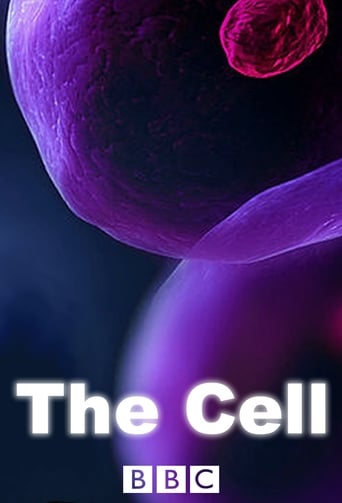
The Cell
Dr Adam Rutherford tells the extraordinary story of the scientific quest to discover the secrets of the cell and of life itself. Every living thing is made of cells, microscopic building blocks of almost unimaginable power and complexity.
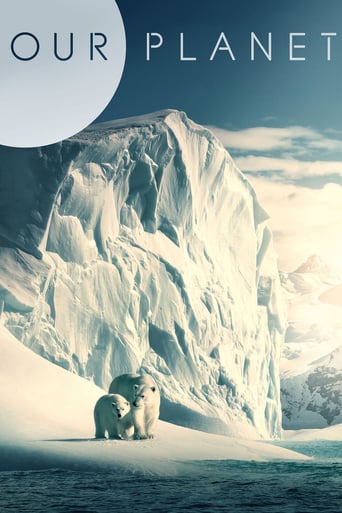
Our Planet
Experience our planet's natural beauty and examine how climate change impacts all living creatures in this ambitious documentary of spectacular scope.
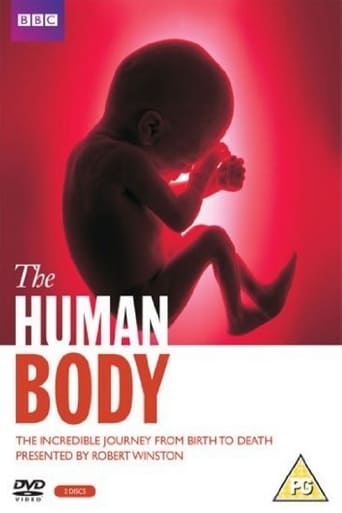
The Human Body
The Human Body is a seven-part documentary series that looks at the mechanics and emotions of the human body from birth to death.
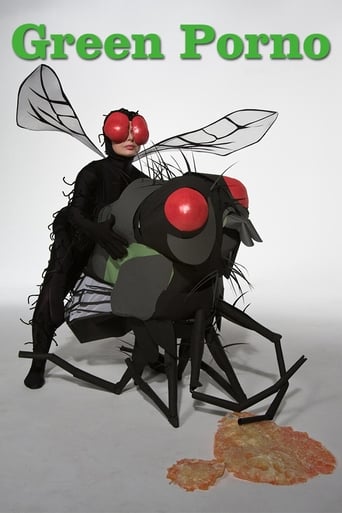
Green Porno
A series of very short films inspired by the amazing and often bizarre sexual practices of insects and other creatures.
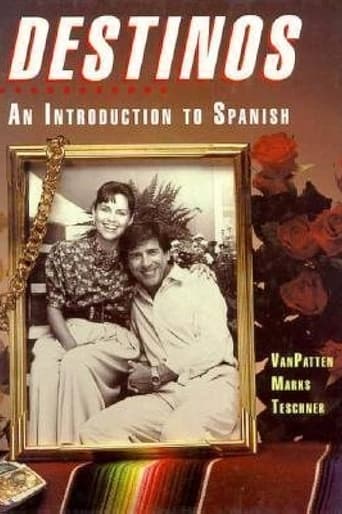
Destinos: An Introduction to Spanish
Destinos: An Introduction to Spanish, also known simply as Destinos, is an educational television program created by Bill VanPatten, who was, at the time, Professor of Spanish and Second Language Acquisition at the University of Illinois at Urbana Champaign. The show, designed to introduce viewers to the basics of Spanish, had two seasons, beginning in 1992. Its 52 episodes are often used for educational purposes in schools and are still broadcast regularly on many PBS stations, as well as many local channels.
Destinos was produced by WGBH Boston and funded by the Annenberg/CPB Project, with additional funding by the Geraldine R. Dodge Foundation.
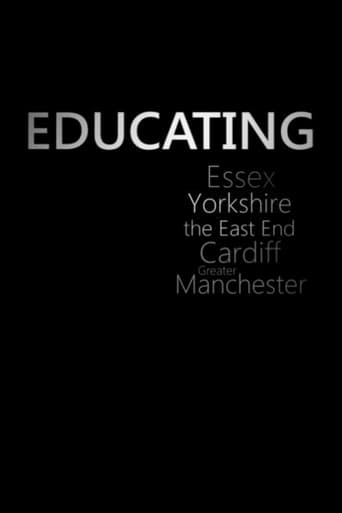
Educating …
Educating … is a British documentary television programme produced by Twofour for Channel 4 that has run since 2011. It uses a fly on the wall format to show the everyday lives of the staff and students of various secondary schools around the UK; interspersed with interviews of those involved and featuring narration from the director and interviewer, David Clews.
Filmed on location at schools in Harlow, Dewsbury, Walthamstow, Cardiff and Salford respectively, there have been six series to date: Educating Essex (2011), Educating Yorkshire (2013), Educating the East End (2014), Educating Cardiff (2015) and Educating Greater Manchester 1 & 2 (2017 and 2020).
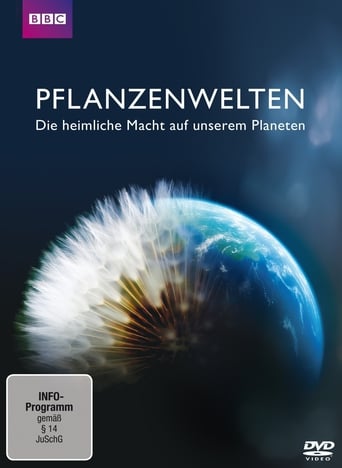
How to Grow a Planet
Geologist Iain Stewart explain in three stages of natural history the crucial interaction of our very planet's physiology and its unique wildlife. Biological evolution is largely driven bu adaptation to conditions such as climate, soil and irrigation, but biotopes were also shaped by wildlife changing earth's surface and climate significantly, even disregarding human activity.
